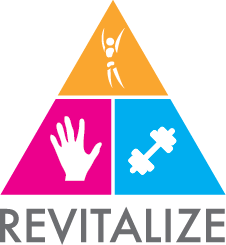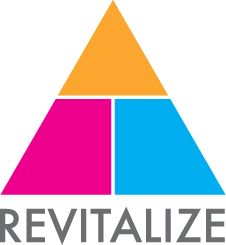Women’s Health is Society’s Health: A Holistic Perspective from Revitalize Clinic, Gravesend
Introduction
At the Revitalize Clinic in Gravesend, we believe that Women’s Health is not only an essential focus for individual wellbeing but also a crucial indicator of familial and societal health. In a recent talk delivered to Network Rail, I, Elliott Reid, Osteopath, explored the profound interconnections between women’s health, community wellbeing and the strength of society at large.
The Mirror of Society
Women’s Health acts as a mirror, reflecting the wellness of the home and broader society. When we nurture and support women, we simultaneously foster the health of future generations and create more resilient communities. My personal experience of becoming a father just 12 days before the talk reaffirmed this truth—my wife’s health was intrinsically tied to our son’s, and his to the health of our society.
A child who grows up surrounded by love and stability is more likely to possess self-sufficiency and resilience. These attributes reduce the likelihood of seeking external validation and build a strong foundation for mental wellness. These principles echo across theology, psychology, and philosophy.
The Origins of Civilisation: A Tribute to Women
Anthropological studies, such as those explored in “The Dawn of Everything,” propose that it was women’s natural inclination to nurture that led to agriculture, and eventually the birth of civilisation. The act of caring and cultivating gave rise to humanity’s ability to settle and build. In many ways, the nurturing spirit of women is the seed from which societies have grown.
My Osteopathic Perspective
As an Osteopath and founder of the Revitalize Clinic in Gravesend, I have treated over 15,000 patients, from the general public to elite athletes. The physical requirements for men and women may be similar, but the social and emotional manifestations of health are often very different.
For example, when societal stress increases, it often manifests as increased domestic violence or discrimination. Robert Sapolsky’s research into chimpanzee hierarchies shows that stressed individuals often “punch down.” In human society, women and minorities often become the victims of this redirected stress. Thus, how society treats women is also a key indicator of its emotional and structural integrity.
A Different Approach to Health
Western medicine typically follows an allopathic model, focusing on disease and its immediate removal or suppression. Osteopathy, however, thrives where time is on our side. It allows us to work with the body’s natural systems to restore balance and health.
Take Mrs Thomas, a patient told she needed a knee replacement. She was 75, type 2 diabetic and overweight. Instead of surgery, we addressed inflammation, muscle mass, and lifestyle changes. Three months later, she was lunging pain-free and had reduced her diabetes medication. This is the power of a whole-person, values-centred approach to health.
The Biopsychosocial Model
This model, now increasingly adopted by the NHS, is deeply rooted in osteopathy. It considers the interplay of biological (body), psychological (mind), and social (environment) factors. Each system evolved to protect and support life, and they must be addressed together for optimal health.
The Role of Nature
Modern life distances us from nature. Food is stripped of fibre, communications are digitised, and movement is minimal. The result? Rising rates of disease, stress and social isolation.
For example, 80% of the food we now consume is processed, compared to 20% in the 1950s. This dietary shift contributes to Western diseases like type 2 diabetes, heart disease and dementia. Processed foods overwhelm our physiology, especially our pancreas and liver, leading to systemic breakdowns.
Exercise: A Daily Reconnection
Exercise is our way of wrestling with the world—a form of physical friction that reinforces strength, resilience and mental health. For women, especially, strength training can:
- Strengthen bones
- Improve muscle mass
- Support menopausal health
- Reduce dementia and anxiety risk
A healthy movement pyramid should include:
- NEAT (Non-Exercise Activity Time): Daily activities like walking (10,000 steps).
- Strength Training: Weightlifting, bodyweight exercises or boxing.
- Cardio: Brisk walking, swimming, gentle running.
- Rest: Intentional and mindful rest, not passive consumption of screens.
The Female Experience of Health
Although the foundations of health are shared, women face unique challenges:
- Cancer and Heart Disease: Affected by lifestyle, diet and inflammation.
- Dementia: Linked to inflammation and artery health.
- PCOS & Endometriosis: Tied to hormonal and dietary factors.
- Anxiety: Women are twice as likely to experience it.
- Osteoporosis: Strength training and a calcium-rich diet are essential.
- Prolapse Risk: Reduced by pelvic floor activation through proper strength training.
The Power of Values
Health advice often fails because it doesn’t align with our core values. Our values are formed around age 7 and remain our internal compass. When we act in alignment with these, we experience less suffering and greater fulfilment.
In the workshop, I invited attendees to reflect on what they would like said at their funeral. Words like “kindness,” “honesty,” and “nurturing” emerged. Living in line with these values reduces suffering and guides better decisions in health, relationships and life.
Practical Framework: The Choice Point
Borrowed from Acceptance Commitment Therapy (ACT), the Choice Point model helps individuals decide whether they’re moving toward or away from their values. Whether it’s a moment of frustration at work or negative self-talk at home, recognising this moment of choice is critical.
We discussed simple strategies to re-centre:
- Breathing techniques to reduce physiological stress
- Self-compassion gestures
- Scheduling self-care aligned with your values
Mindfulness and Thought Detachment
In a practical exercise, we used visualisation to separate ourselves from our thoughts, reminding attendees: “You are not your thoughts.” By personifying these thoughts or reading them in a silly voice, we create space and disempower them.
Bringing it All Together
The Revitalize Clinic’s approach to health in Gravesend is not about quick fixes or gimmicks. It’s about a return to nature, to values, and to self-awareness. Through osteopathy, personal training, counselling and holistic support, we guide individuals to:
- Become mentally well
- Live pain-free
- Feel physically fit
Because, as we emphasised in this talk, you are the entire garden. You are not a collection of disconnected systems. Health is your natural state, and it’s often found not in something new, but in reconnecting with what is already within you.
Contact Us
At Revitalize Clinic, we are here to help you reconnect with your best self. Whether you’re struggling with chronic pain, emotional stress or simply want to become fitter and stronger, we are ready to support you.
Call us today on 01474 356 284
Email: info@revitalizeclinic.co.uk
Or book in online at www.revitalizeclinic.co.uk
Let us help you move toward your values and a healthier, happier life.

